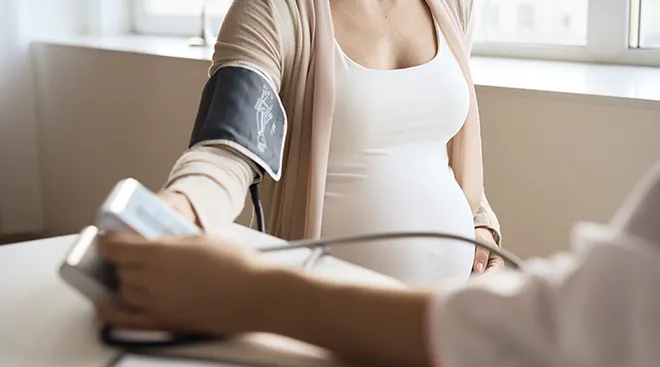
Overview
Preeclampsia is a condition that occurs only during pregnancy. Some symptoms of preeclampsia may include high blood pressure and protein in the urine, occurring after week 20 of pregnancy. Preeclampsia is often precluded by gestational hypertension. While high blood pressure during pregnancy does not necessarily indicate preeclampsia, it may be a sign of another problem. Preeclampsia affects at least 5-8% of pregnancies..
Symptoms
Mild preeclampsia: high blood pressure, water retention, and protein in the urine. Severe preeclampsia: headaches, blurred vision, inability to tolerate bright light, fatigue, nausea/vomiting, urinating small amounts, pain in the upper right abdomen, shortness of breath, and tendency to bruise easily. Contact your doctor immediately if you experience blurred vision, severe headaches, abdominal pain, and/or urinating very infrequently.
Causes
Treatment depends on how close you are to your due date. If you are close to your due date, and the baby is developed enough, your health care provider will probably want to deliver your baby as soon as possible.
If you have mild preeclampsia and your baby has not reached full development, your doctor will probably recommend you do the following:
Rest, lying on your left side to take the weight of the baby off your major blood vessels.
Increase prenatal checkups.
Consume less salt
Drink at least 8 glasses of water a day
Change your diet to include more protein
If you have severe preeclampsia, your doctor may try to treat you with blood pressure medication until you are far enough along to deliver safely, along with possibly bed rest, dietary changes, and supplements..
Healthy Human Clinics (HHC) is an innovative concept in the modern practice of medicine. Here, we focus on health, rather than disease. Our aim is your well being, rather than your disease. We work relentlessly, selflessly, ethically, and in the most honest way to bring the best practices in the world to give you the gift of health.
